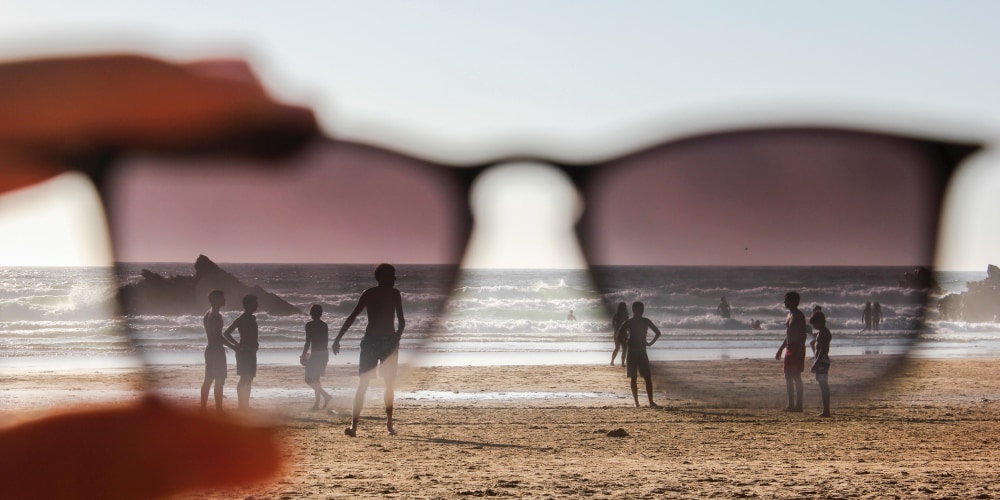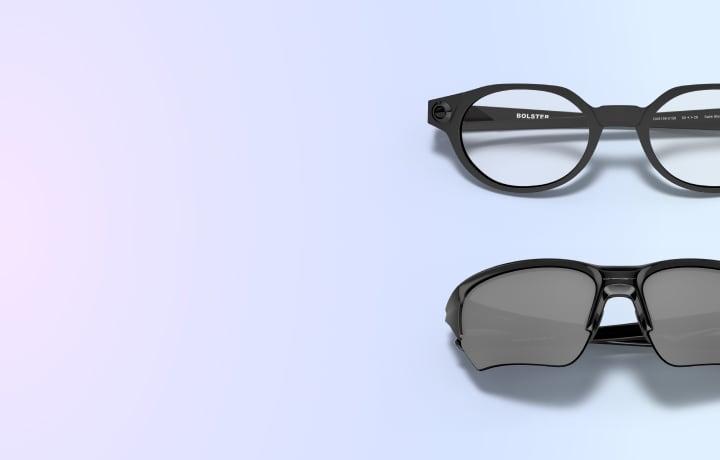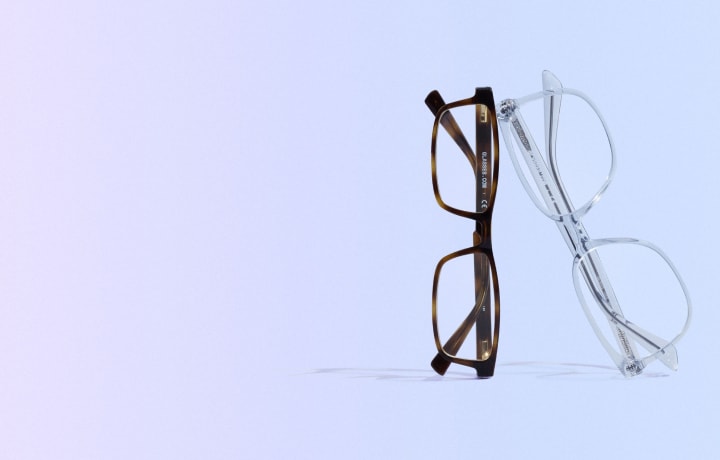
Our skin is of great concern when considering sun damage. The sensitive skin around our eyes and our eyes themselves are at risk from the sun. Glasses with UV protection act as eye protection from the sun. Continue reading to find out more about how UV radiation affects your eyes and how to shield them from the sun's rays.
How important is UV protection in glasses and sunglasses?
When looking for new eyewear, polarized UV protection sunglasses might not be at the top of your list of priorities. But did you know that damaging ultraviolet (UV) radiation can potentially hurt your eyes and the skin around them even when the sun isn't shining? Do not be deceived by the clouds; even on cloudy days, UV radiation can reflect off surfaces like sand, water, snow, and buildings. To protect your eyes from sun damage outdoors, UV-coated glasses and UV-protective sunglasses have a tiny layer of UVA- and UVB-blocking material on them. Many sunglasses come with a UV coating as standard, and some companies have their own proprietary lens technology.
Do I need UV protection on my glasses?
Yes, UV coating on sunglasses and eyewear shields your eyes from damaging UV rays. Without wearing UV-protective sunglasses or eyeglasses, even brief exposure to ultraviolet radiation can harm your eyes in ways comparable to a sunburn. Your eyes may turn red and puffy or feel gritty as if you have sand in them. You can experience extreme tearing if you're very sensitive to light. Thankfully, these sensations are frequently transient. However, if you regularly expose your eyes to solar radiation, you run the risk of eventually acquiring cataracts or macular degeneration.
Before the age of 20, around one-fourth of UV damage to your eyes occurs. Summertime is when kids spend the most time outdoors exposed to UV radiation. Additionally, adult sports like running marathons and the hours of training can be harmful to the eyes. UV-protective sunglasses are crucial for maintaining the health of your eyes for the rest of your life.
What are the benefits of UV protection glasses?
The sun is the primary source of ultraviolet radiation, although other sources include welding equipment, tanning beds, and lasers. UV protection on your glasses and sunglasses lenses can benefit your eye health. UV radiation can harm your eyes. Any plastic or glass lens can have UV coating added for maximum protection.
Can UV protection be added to glasses?
How to tell if sunglasses have UV protection? Many sunglasses come with a UV filter lens coating as standard, and some companies have their own proprietary lens technology. If your glasses or sunglasses don’t have this coating already applied, you can add it as an add-on option during the buying process.
Polarized lenses vs. UV protection: what are the differences, and which is the best?
What’s the difference between polarized vs. UV protection lenses? Polarization and UV protection are not the same thing. Even though some businesses promote them together, it can be challenging to distinguish between UV and polarized sunglasses.
The term "polarization" describes a lens's capacity to lessen haze and glare in strong sunlight. The majority of sunglasses with polarized lenses also provide UV protection. Make sure that the lens you select has both when you buy them. Polarization is unrelated to UV protection, so check that the lenses are UV-absorbing.
Best glasses for UV protection
The best sunglasses to protect eyes from UV rays offer a high level of UV defense, usually measured as a percent (ex. 100% defense against UV rays). The best sunglasses for UV protection have lenses that offer between 99% and 100% protection from UV light and are called UV-400-protected glasses.
Look for sunglasses with a UV 400 rating, which offers nearly 100% protection from dangerous ultraviolet light rays, as the greater the number, the better.
Up to 400-nanometer wavelengths are blocked by UV 400 protection lenses. Additionally, they block out between 75 and 90 percent of the visible light from the sun, which passes through the planet’s atmosphere and travels to your skin and eyes as UVA and UVB rays.
This high level of sun protection is crucial because, if you don't wear the right sunglasses, your risk of developing eye disorders like macular degeneration, cataracts, and photokeratitis will rise over time.













